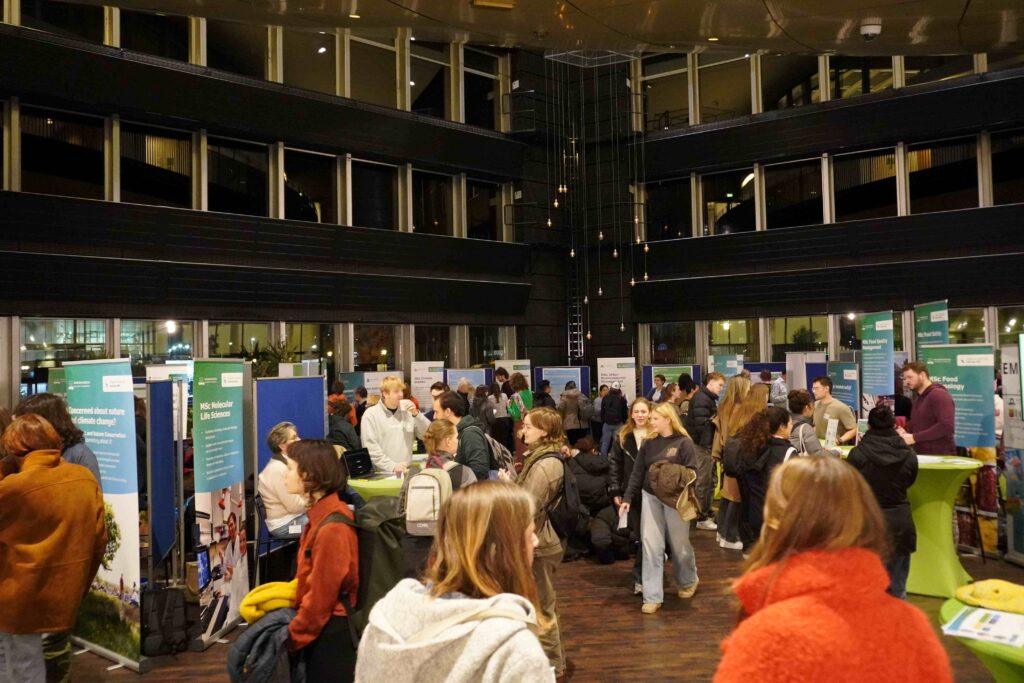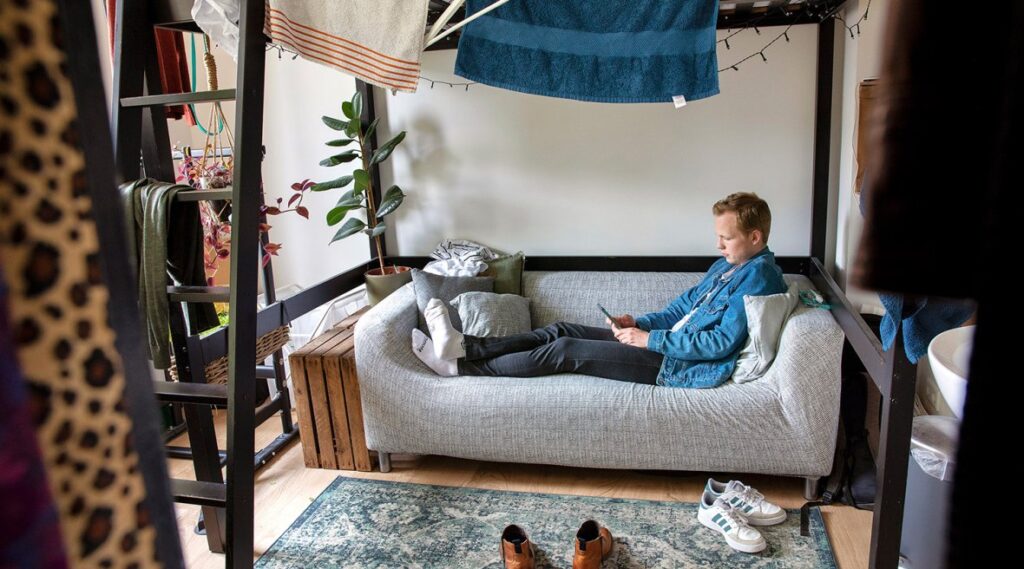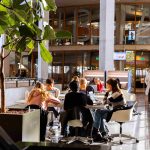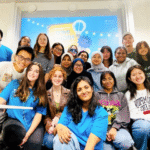A Recap of the 2025 Master’s Open Day
Less than a week ago, WUR hosted its Master’s Open Day (MOD) for enthusiastic prospective students. The four-hour event was very fruitful, with a lot of attendees present at the event. The MOD took place in one of our main campus buildings – Orion – where we held stands and presentations. Each of the different Master’s programmes had a stand, where the current students gave information about the content, expectations and unique facts about courses. There were also stands from sport associations like Thymos and other organisations, such as the Student Challenges, which offer extracurricular activities for students.

In addition to the programme market, prospective students could also join presentations of the different programmes. These presentations where mostly focused on the content of the programmes and not so much on the student life and practical matters, such as immigration. That is why our International Students Team prepared a presentation for the attendees. This was hosted by me and my fellow teammate, Margaréta. During the presentation, we talked about important things related to studying at WRU, such as:
- Wageningen Campus and the City
- MSc Programmes & Structure
- MSc Application & Admissions
- Pre-Master Opportunities
- Tuition, Expenses & Scholarships
- Student Housing
- Social life & Extracurricular activities
Students from all over the world attended the presentation, and they had different questions for us about life in Wageningen and the student experience. Here, I will share some of the questions and answers you might find useful to know!
How challenging is it to find a house?
This is perhaps the main question everyone is interested in knowing. In general, it is a tough task to find a house in Wageningen and throughout the Netherlands in general. But it’s not impossible! The best way to approach this is to sign up at Room.nl as soon as possible. It’s a main platform where you can find student accommodation.
Pro tip: Sign up early because this way you will be prioritised with accommodation offers.
Other than that, Facebook groups also work when either landlords or flatmates are looking for a new tenant, and they share a post about it. Be aware that there are some scammers out there, so make sure to do a thorough research!

What are some of your tips for finding a job in Wageningen?
Be proactive! It is very important that you actively search for jobs – that goes beyond checking some websites. Throughout the year, I managed to get a job by checking WUR’s official website with specific programmes involved, or I saw a poster on the campus wall. If there are available positions within the university, you can often see the ads on the walls of different buildings – all you do is scan the QR code or simply contact them. I also have peers who got jobs by asking around – whether it’s at the cafeteria of the university, a chair group or hospitality spots in the city centre. At a first glance, it might look like a big challenge, but once you start looking deeper, options become plentiful!
Important information for non-EU students: if you want to get a job, you first need to apply for a work permit with your employer, which takes a few weeks, so start in advance!
Are the living costs the same for everyone?
Certainly not! The living costs include accommodation, food, transport, recreation and other needs. The given numbers are based on WUR’s estimation, which is slightly different from the nationwide estimation. The reason is that living in Wageningen is a bit more affordable compared to big cities such as Amsterdam, Rotterdam and Utrecht. Wageningen is one of the places in the Netherlands with the lowest rental costs – great news for students! So, if you’re a student living in Wageningen, your costs will probably be less compared to someone who lives in Utrecht, for example.

What was the hardest part for you when you began your studies?
For me, it was the first two months of living in Wageningen. I had a very demanding course with compulsory attendance, and I was still getting adjusted to living here. I already managed to find a house by that time and applied for a job. However, finding a work-life balance was difficult at first. I did not know how to effectively plan my days, studying and working hours, while making sure I had enough time to unwind. So, it was very hectic in the beginning and at times, I was exhausted. Eventually, when I started to put the classes, group work and individual studies in my Outlook calendar and create my own work schedule, things got easier.
The main message here would be to take your time with figuring things out. It is not going to be a smooth start. First, you have to test the waters, see how you can work around your responsibilities and schedule everything. By organising your tasks, you will have a clear vision of what you are doing and how much spare time you have for other things. It gets easier eventually!
That’s a wrap for today! More blogs are yet to come, so be on the lookout!
Cheers,
Samir





I am requesting for a scholarship to join for the Masters programs in your university
Hi Solomon, here is the link linkwhere you can find more information about the scholarships. Good luck 🙂
I wanna a study for an MSc in Plant Biotechnology and an online MSc in Plant Breeding as a second option.
Hi Kenenisa, so lovely to hear your interest about joining WUR for your Master’s. Best wishes with the applications!